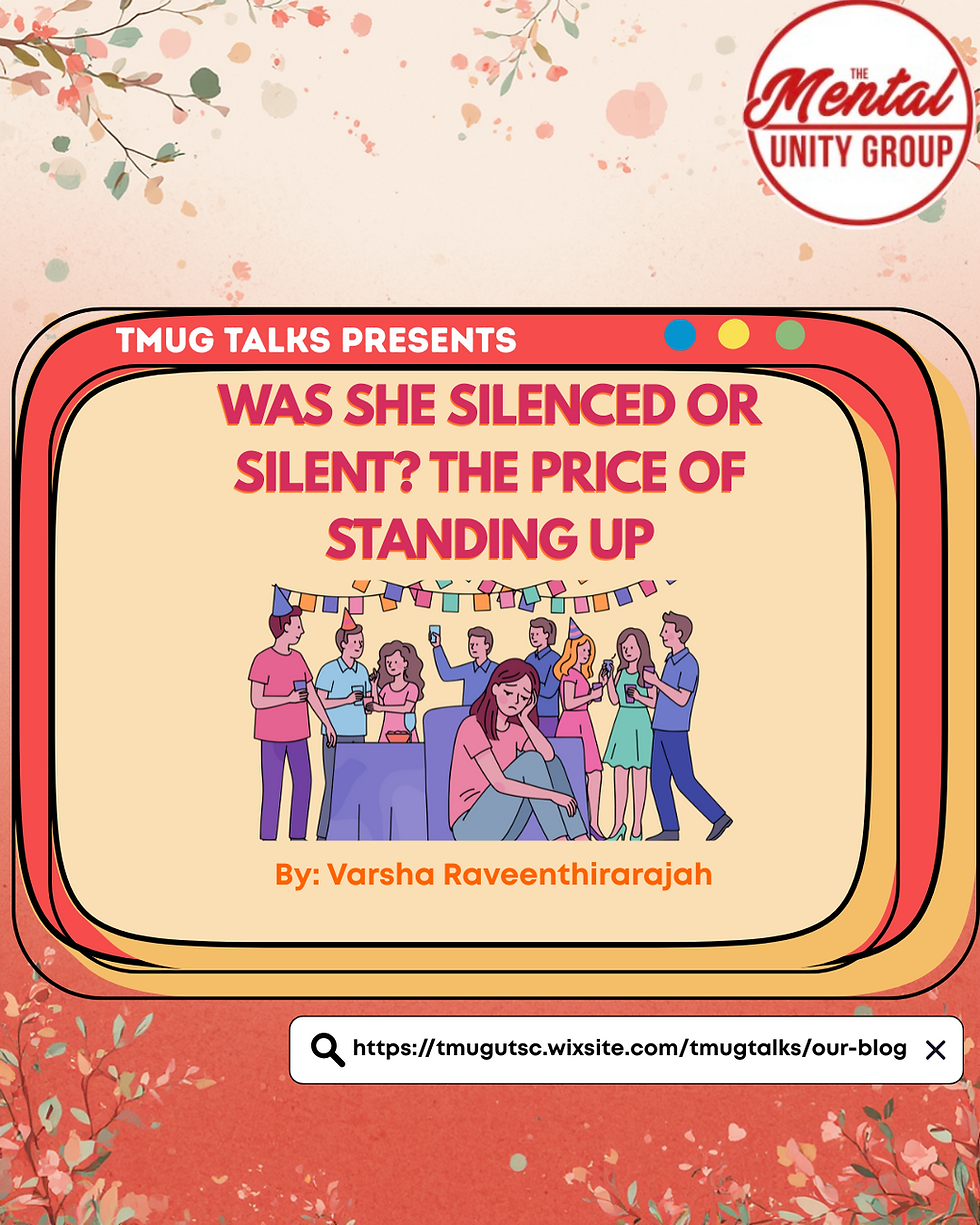Self-Care, Self-Served
- Frankie Chan

- Jul 17, 2021
- 2 min read

Accessing mental health services has never been an easy feat for post secondary students. It isn’t unusual to experience long wait times, financial burden, ineffective support, or stress in navigating the system. Considering this day and age, is this acceptable? With the prevalence of mental health, the dissipating stigma, and the general vulnerability of students to academic pressure, why does it seem our institutions never improve in this manner? Why do things always seem complacent?
Leave it to students to take matters into their own hands. Following the trend of digitalization and co-design seen in mental health, an app named Thought Spot was developed for and by students as a mobile app geared towards mental health support. It acts as a hub that maps out mental health services in the local community (think Yelp, except solely for mental health), and a platform for thought journals amongst many other growing features. Truly a one stop shop for self-care! (https://mythoughtspot.ca/ )
The essence of this app already addresses the many common issues mentioned above: accessibility, cost, and personalization of services. However, like with most apps on a students’ phone, long term engagement is another story. We all know dealing with mental health is a lifelong journey. So, installing an app and using it once or twice is hardly a suitable outcome the developers of Thought Spot were aiming for. What are ways to increase app engagement, self-care, and sustained wellness?
Firstly, content appears to be and unsurprisingly so, an important factor in determining engagement. As with most things, it helps to be concise and relevant. With the complexity of mental health, it continues to be vital that information is distilled in a manner that meets the level of understanding by the general public. Another intriguing finding was the desire to have shared perspectives by those with lived experience which may offer relatable and valuable advice. Knowing that the information is coming from a genuine place, increases the appeal and “buy-in” for engaging in continued self-care practices.
Second, peer to peer communication was highly sought for, but unfortunately a missing feature. On top of the yelp-like sharing of resources in the app, it appears that sharing information with other apps is valuable as well. One could presume that by educating loved ones, this could act as a means of self-care as they become more readily prepared to support that individual in their mental health journey.
These very findings have implications for everyone, even for those who choose not to use this app. By being aware of what people look for in mental health services, we all increase our understanding of what keeps us devoted to our own self-care. Overall, it appears that presence of lived experience, open forums for safe discussion, ease of sharing resources, access to practical info like service wait times and costs are all important factors in driving self-care and seeking support. To meet our constantly evolving needs, and the importance of proactive mental health measures, studies like this are needed to ensure we uphold a gold standard of support.





Comments